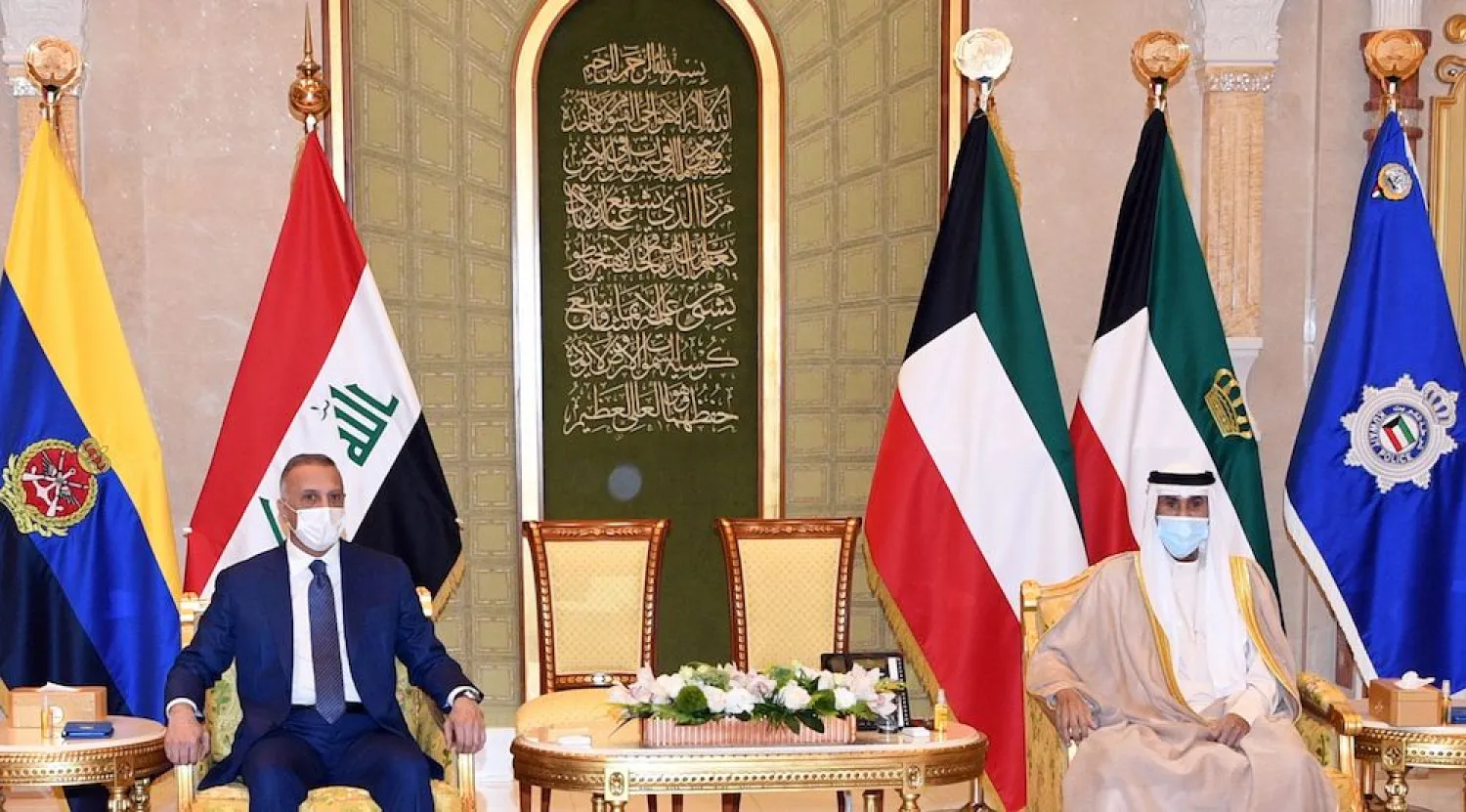Emir of Kuwait Sheikh Nawaf al-Ahmad al-Jaber Al Sabah held talks in Kuwait on Sunday with Iraqi Prime Minister Mustafa al-Kadhimi.
The premier had arrived in the neighboring country on Sunday at the head of a senior delegation.
Discussions with the Emir focused on bilateral relations and ways to boost them on all levels, as well as the latest regional developments.
A statement from Kadhimi’s office expressed appreciation to the stances of late Emir Sheikh Sabah al-Ahmad al-Jaber Al Sabah and the current vision of Sheikh Emir in supporting Iraq and developing bilateral ties with it.
Kadhimi said the coronavirus pandemic, economic challenges and regional tensions underscore the need for solidarity and increasing cooperation between Iraq and Kuwait.
The Iraqi government is working on transforming Iraq into a meeting point for dialogue and the exchange of views between various parties, he remarked.
It is intensifying efforts to bolster international cooperation to support Iraq and boost relations with neighboring countries, he added.
He noted that Iraq will host at the end of August a summit for the leaders of regional and neighboring countries, hoping that Kuwait would take part.
The German news agency said Sheikh Nawaf stressed to Kadhimi that Kuwait will continue to support Iraq and its government against several challenges. It will support it overcoming obstacles to help achieve the best of relations and secure the interests of the Kuwaiti and Iraqi people.
Kadhimi later met with his Kuwaiti counterpart Sheikh Sabah Khalid Al Sabah for talks on bilateral relations and the latest regional, Arab and international developments.
The visiting premier also held talks with National Assembly Speaker Marzouq Al-Ghanim.









